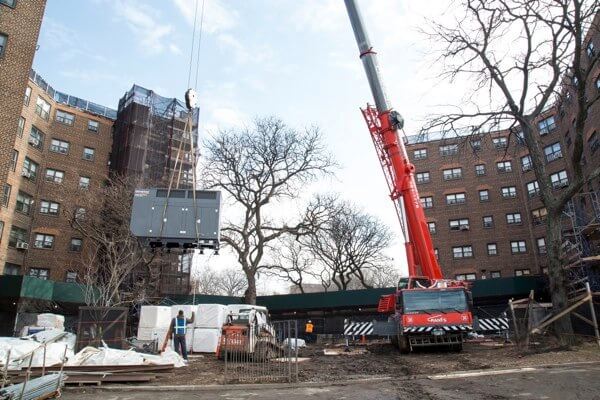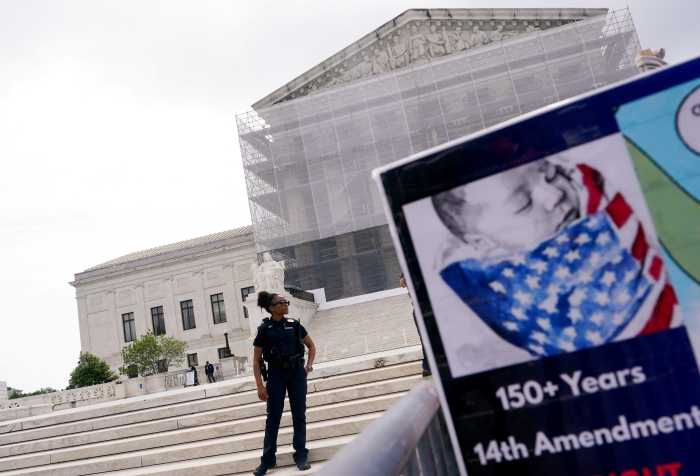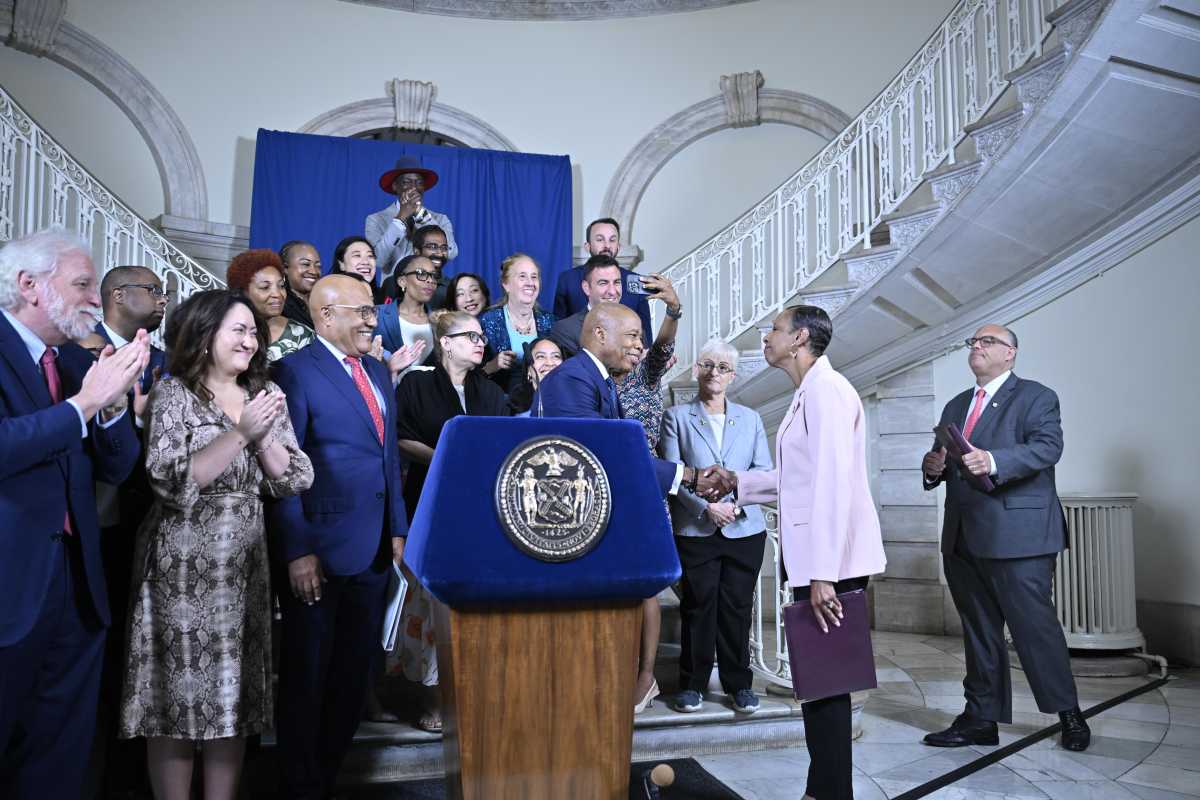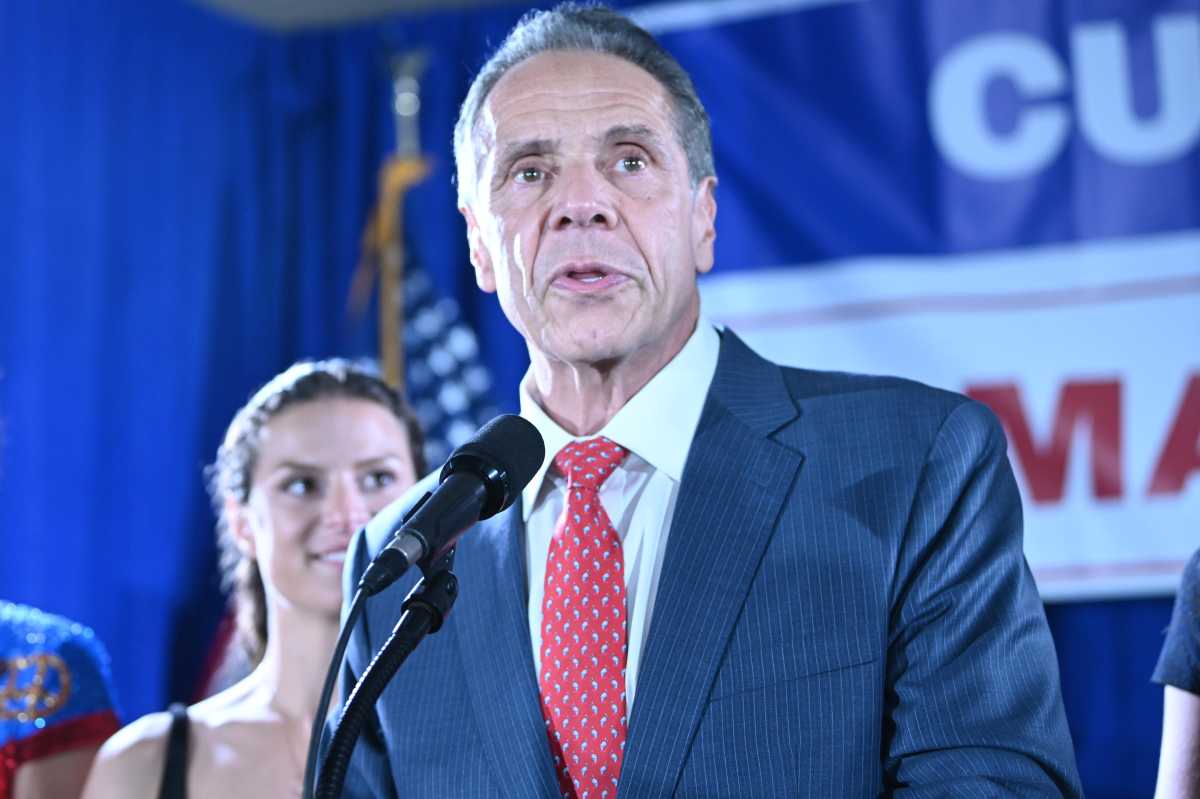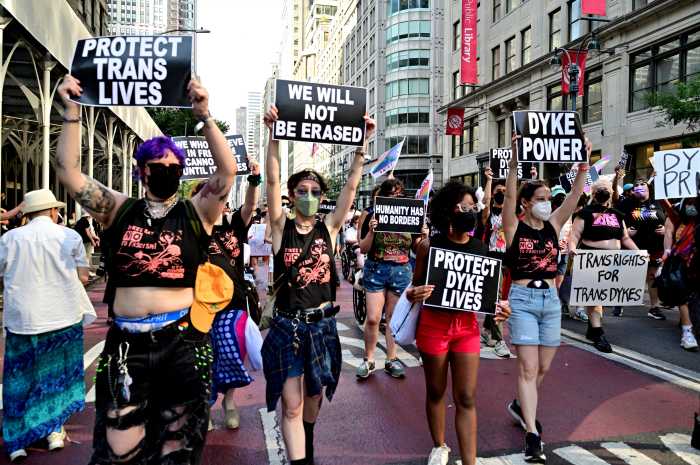By Mark Hallum
Astoria Houses received new rooftop generators for surge protection from storms on Feb. 14 purchased with FEMA funds awarded to NYCHA following Superstorm Sandy in 2012, which affected up 60,000 residents living in homes managed by the city agency.
The December 2015 FEMA grant of $3 billion has so far funded $1.85 billion in contracts to make NYCHA buildings and their inhabitants less likely to experience the hardships of future storms to come through structural reinforcement, storm surge protection and infrastructure upgrades.
“Our Sandy recovery work shows that NYCHA can be a leader in rebuilding stronger, more resilient cities,” NYCHA Chair Shola Olatoye said. “This unprecedented public investment will provide the almost 60,000 NYCHA residents who were affected by Superstorm Sandy with safe, stable homes in the face of future storms and the undeniable consequences of climate change.”
U.S. Rep. Carolyn Maloney (D-Astoria) took credit for securing $75 million in federal funds for the NYCHA recovery effort.
“Additional work needs to be done, but these resiliency improvements, along with the rooftop generators, are a step in the right direction and will go a long way to protect our residents during future storms and hurricanes,” state Assemblywoman Catherine Nolan (D-Ridgewood) said.
But state and other elected officials have been critical of the extended wait time on NYCHA housing improvements and repairs.
Mayor Bill de Blasio defended his administration against claims from the state that the city was not acting fast enough to bring reliable heat and hot water to NYCHA residents over the course of the winter.
Gov. Andrew Cuomo had proposed issuing a state of emergency for NYCHA buildings in the face of a harsh winter, but de Blasio countered by telling the “Brian Lehrer Show” the state had never followed through with delivering promised recovery funds.
“First of all the state has not provided us with the funding from several budgets ago, let alone the $200 million that was allocated in the last state budget back last April, 2017des old, we would welcome that conversation, we would try to work together. But if the state’s trying to score political points, and deal in simplistic ideas that are not really going to help the people of the public housing buildings in our city who are 400,000 New Yorkers, you know, then let’s be honest about what’s really going on,” de Blasio said. “If the state really wants to sit down with us and say how can we play a constructive role in addressing some of the challenges in NYCHA that are decades old, we would welcome that conversation, we would try to work together.”
De Blasio said his administration has recently committed $3.7 billion to NYCHA facility improvements and for day-to-day operations.
But city officials led by Councilman Robert Cornegy (D-Brooklyn), the Housing and Buildings Committee chairman, have taken the governor’s side on the issue, calling on the state to declare a state of emergency in terms of lead paint and other conditions at NYCHA facilities.
“The appalling state of disrepair in NYCHA buildings both in my district and across the city is a serious health and safety hazard for residents. Too many parents and children have been exposed to either moldy conditions or dangerous lead paint, while families have suffered in the cold this winter without heat and hot water,” Councilman Rory Lancman (D-Hillcrest) said.
Councilwoman Adrienne Adams (D-Jamaica) said NYCHA residents are paying rent to the city and in return are forced to live in subpar conditions.
“There are thousands of New Yorkers living in substandard NYCHA housing,” Adams said. “These residents are paying rent like every other tenant and they deserve to have heat and hot water. NYCHA buildings are in crisis and a more profound investment is needed. An immediate declaration of emergency is necessary to make these urgent repairs.”
Reach reporter Mark Hallum by e-mail at mhall

